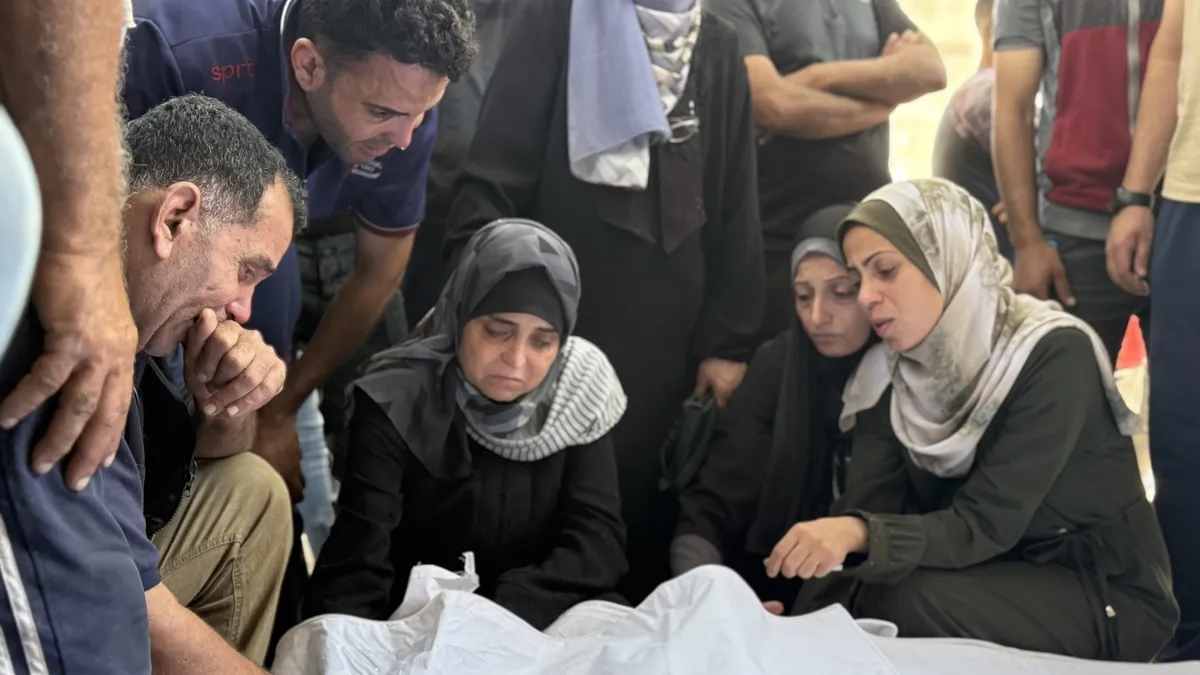
GAZA CITY and WASHINGTON – The Israeli military has ramped up its strikes across Gaza on Friday, coinciding with indications from President Trump that discussions surrounding a potential 60-day ceasefire between Israel and Hamas are nearing a conclusion. “We'll see what happens – we are going to know over the next 24 hours,” Trump stated to reporters early Friday. He emphasized that it was up to Hamas to accept the framework of the proposed deal, noting that Israel had already signaled its agreement.
While Israeli officials have not publicly confirmed their stance on the ceasefire negotiations, they have indicated that there are “positive signs” suggesting readiness to engage in discussions. In a statement released on Friday, Hamas described its response to mediators as “positive,” underscoring its willingness to commence negotiations aimed at implementing a ceasefire.
A senior official from Hamas, speaking to NPR on the condition of anonymity, revealed that the group is seeking guarantees for a permanent end to the conflict. This demand, along with a partial withdrawal of Israeli forces from the enclave and the reinstatement of the United Nations as the primary aid distributor in Gaza, has been a sticking point in previous negotiations. Following an almost three-month blockade of aid, Israel has engaged the Gaza Humanitarian Foundation, a private U.S.-funded contractor, to manage food distribution. However, these distribution sites have often been chaotic and perilous, resulting in casualties among Palestinians attempting to secure aid.
On Monday, Trump and Israeli Prime Minister Benjamin Netanyahu are scheduled to meet in Washington, where they are expected to delve deeper into the potential ceasefire. This will mark Netanyahu's third visit to the White House since Trump resumed office in January. The last ceasefire agreement between Israel and Hamas, which took place in January, lasted nearly two months before Israel resumed hostilities with a series of unexpected airstrikes.
Earlier in the week, Trump urged Hamas to accept the ceasefire deal promptly, warning that conditions in Gaza would only worsen. “I hope, for the good of the Middle East, that Hamas takes this Deal, because it will not get better — IT WILL ONLY GET WORSE,” he asserted on his social media platform, Truth Social. Although the specifics of the deal remain undisclosed, it is expected to revolve around the return of Israeli hostages taken during the October 2023 Hamas-led attack on southern Israel. Currently, approximately 50 hostages are believed to be held in Gaza, with more than half thought to be deceased, according to Israeli sources.
As the Israeli strikes escalate, the humanitarian crisis deepens. At al-Shifa hospital in Gaza City, grieving Palestinians mourned the loss of loved ones, including several children, following an Israeli strike on a nearby school sheltering displaced individuals on Thursday. NPR reporters documented at least nine bodies in the morgue, while dozens of injured patients received treatment at the facility. Othman Abdu, who lost three children in the attack, conveyed a heartfelt message to both negotiating parties, urging, “Enough malicious politics. Have mercy on us. There are innocent people being killed.”
Hospitals throughout Gaza are overwhelmed with patients, as the ongoing strikes have surged even amidst cautious optimism surrounding a potential ceasefire. According to Gaza health officials, at least 138 Palestinians have been killed and over 400 injured over Thursday and Friday alone, with more than 60 of those casualties occurring while individuals awaited aid.
This report is compiled with contributions from NPR's Anas Baba in Gaza City, Hadeel Al-Shalchi and Alon Avital from Tel Aviv, Abu Bakr Bashir from London, and Ahmed Abuhamda from Cairo.